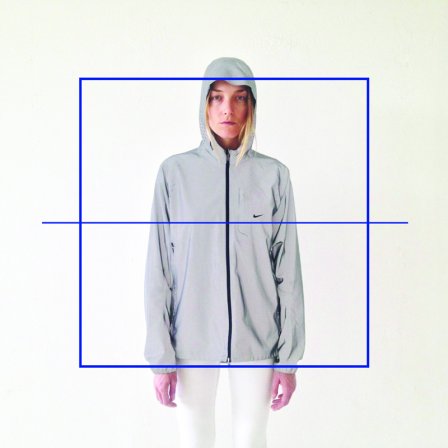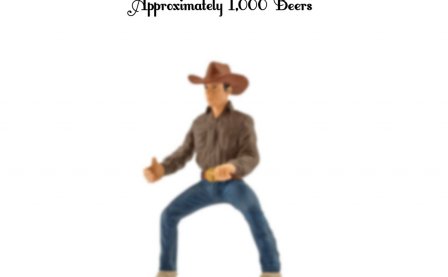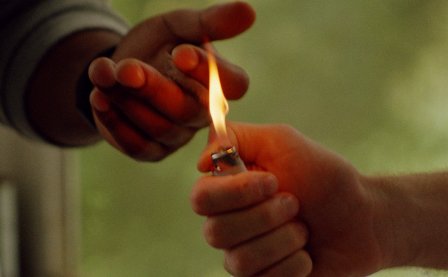Despite inspiring a great deal of critical comparison, Jeff Witscher and Daniel Lopatin bear very little resemblance in musical style. Their similarities are more apparent through impulsive moniker alteration than through solo output, particularly while operating under their respective and most well-known aliases, Rene Hell and Oneohtrix Point Never. It’s quite striking therefore that 2012’s Music For Reliquary House/In 1980 I Was A Blue Square saw the artists pairing their material, and that this year, they are both releasing new albums within weeks of each other. It seems only fitting, then, to approach Vanilla Call Option within that context.
The joint effort for NNA Tapes was a mad and often frustrating investigation of ideas. It comprised one long-form piece by Lopatin with five tracks from Witscher, but its bulk remained unrestrained and disappointingly lacking for the most part. Where Oneohtrix Point Never’s coursing “Music For Reliquary House” was a noise-tinted gear change riddled with abstract vocal loops and high-frequency glitch, Rene Hell’s contribution rustled slapdash classical instrumentation upside kosmische keys and gritty surface crackle — it exposed a similar approach to Terminal Symphony, only with less attention to detail. The project portrayed both musicians as the incredibly adventurous musicians they are, whose preferences appear to split apart more often than they meld together. It provided an indication of their aesthetic divergence as opposed to the beginning of a long-lasting musical partnership, emphasizing the differences that have since been affirmed by their most recent material.
R Plus Seven, the forthcoming full-length from Oneohtrix Point Never, is a glossy exploration of New Age and meditation music by-proxy, where artistic interpretations of serene, natural settings are subverted and re-imagined in the form of pristine harmonics. Vanilla Call Option also strives for a pristine finish, but from an alternate perspective; taking pointers from Bernard Parmegiani’s musique concrète, each sound is disjointed from its surroundings. This makes certain sequences (“this is chess,” “8,” and my personal favorite, “unpack; glue”) uncomfortable to fathom, as they contrast a plume of ambient sections that creep up through the perplexing mist. As a complete work, it embodies a series of unexpected sounds that reflect urban digital subversion, going against the grain of any subjective presentation of organic tranquility. It’s a conceptual mapping of the digital bleeps, incessant announcements, random busking, mobile alarms, traffic sirens, and electronic commands that mesh into unconscious city life. Vanilla Call Option feels like a displacement of the familiarity that we listeners feel for such noises when presented in the context of artistic sentiment.
The opening track, “Smile Models,” is a cold but earnest welcome into Rene Hell’s soundworld, which exists as a chaotic and stupefying space, despite its creator citing classical minimalism as an influence. The piece offers little accessibility and demonstrates a disregard for how focused some of the later material unfurls. Sounds that are frequently encountered elsewhere become magnified as the record progresses, but these are fragments that would otherwise register unconsciously — while using a busy public transport system or waiting in an airport lounge — they are the very opposite of the natural and the organic, and they come encapsulated by refined tones used to emphasize warning or temporary access, or to encourage a physical response. In the context of an album, they lose all manner of instruction while maintaining the intrusive frequencies they bear as decontextualized sonic components. It’s unclear as to whether or not this was fully intended, but Witscher has indicated a number of recording locations — “on the move between airports” (instead of explicitly waiting in them) and “public libraries,” in particular — it’s an observation that runs through the album to varying degrees of effect.
Where the hissy fizz adorning “this is chess” and the crinkled ping pong of “kalashnikov uzi” run rampant across the album’s enchanting course, a dramatic shift occurs on “merci cheri,” which acts as a counterweight to all that surrounds. It takes on a continuous structure in the form of a drone segment that bleeds heavily over classical instrumentation — it’s a tactic Rene Hell seemed intent on experimenting with throughout In 1980 I Was A Blue Square; the acoustic instruments are swamped away with a deep and resonant blur, which drowns the passing of string orchestration to amazing effect. It’s certainly the most relaxed pick off the album, and it works as a singular moment of calm in an otherwise crazed and sporadic depth charge of of avant-garde electronica.
It’s a telling sign that Rene Hell is delivering his latest album on Bill Kouligas’ wonderful PAN label, while Oneohtrix Point Never is releasing R Plus Seven with Warp. For in spite of last year’s awkward collaboration, the artist’s have about as much in common as their respective labels do — there might be some overlap, but their primary objectives are contrasting. The unorthodox, electroacoustic trappings of PAN make it a perfect home for Rene Hell, who is developing a spectacular new approach to his aesthetic: it differs drastically from the blissful expanse of Marble Sky (though the gorgeous Sway cassette comes highly recommended) and from the jagged thud of Impregnable. Witscher is an artist destined to remain in the limelight of experimental music, either as Rene Hell or another of his intriguing monikers, and on Vanilla Call Option, he makes his most thoughtful and most confident statement yet.
More about: Rene Hell




